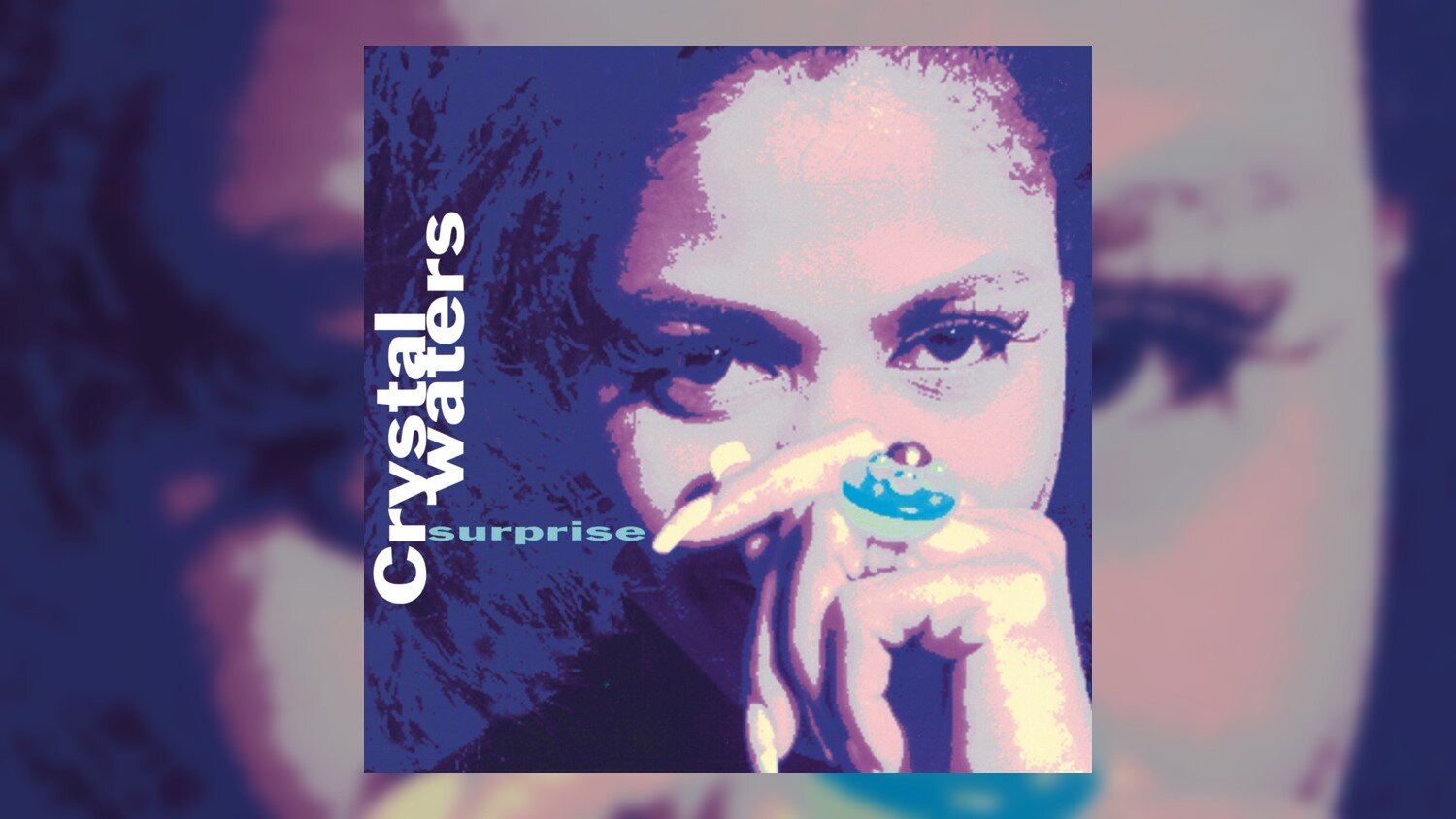Happy 30th Anniversary to Crystal Waters’ debut album Surprise, originally released June 25, 1991.
With a birth name like Crystal Waters, it was almost inevitable that a life in the public eye, no matter the medium, was always going to be in the cards. Couple this with a show business pedigree that includes being the daughter of the legendary jazz musician Junior Waters and having a great aunt, Ethel Waters, who was a pioneer as one of the first Black singers to appear in commercial Hollywood films (Cabin in the Sky, The Sound and the Fury) and the first Black American, man or woman, to have her own TV Show (The Ethel Waters Show). Some incredibly large shoes to fill and some hefty musical DNA to help that journey along nicely.
Given this, it’s hard to believe that even with all that musical pedigree running through Waters’ veins, she first pursued a career as a computer technician. Not content to let go of the music, she started providing backing vocals at a local recording studio. After a chance meeting with the Basement Boys, a collaboration to begin writing was born and within months she had written two songs, “Makin’ Happy” and “Gypsy Woman,” both securing a place on Waters’ debut album, Surprise.
In early April of 1991, Waters released the debut song from Surprise, “Gypsy Woman.” The song was initially intended for Ultra Nate, but legend has it that after Waters’ demo of the song, she was signed on the spot and the dog was hers. With its infectious and now iconic organ refrain and the simple but unforgettable chorus of “La da dee, la da da,” “Gypsy Woman” has been recognized as one of house music’s most important classics.
Whilst the song not only propelled Waters to the top of the charts globally and placed house music front and center in the commercial arena, Waters wanted the song’s theme about a homeless woman, to be taken more seriously. Over the years, Waters has given countless interviews in which she has anecdotally shared her experience of passing by a homeless woman, dressed immaculately and singing gospel songs. At first, the singer couldn’t understand why someone so immaculately dressed could possibly be asking for money. Waters subsequently read an article in a local newspaper about how the woman had recently lost her job and felt that if she was going to be asking people for money, she best do it looking good. Waters said it was this situation that changed her views on homelessness and the inspiration that led to the birth of “Gypsy Woman.”
With only three singles being released from the album, the remaining six tracks on the album, excluding the remix of “Gypsy Woman” as the album’s closer, just don’t match up to the album’s trilogy of singles. The second single “Makin’ Happy” was released nearly five months after Surprise’s release in June 1991. With its thumping house beat, “Makin’ Happy” again stormed the Dance charts around the world, including stateside. Whilst some likened it to “Gypsy Woman Pt 2,” a common attitude at the time was to dismiss anything to do with house music, given its origins and popularity in certain subcultures that still had not taken their place at the table yet. Waters continued with her subtle jazz inflections on this track and gave remixing duties to legendary DJ Steve W. “Silk” Hurley. Three decades on, this song still commands a crowd on a club dance floor.
The album’s third and final single is the title track “Surprise,” which again entered the top ten on the US Hot Dance Music/Maxi-Single Sales chart. Continuing with her happy house vibe and now infamous and instantly recognizable nasal tone, Waters’ music was quickly becoming recognized as a sound that left the listener not just wanting to tear up the dance floor, but also to smile from ear to ear upon indulging in the euphoric sounds she was creating.
There is an expressive quality in Waters’ voice, something that not only leaves the listener enchanted, but also shows that range is not everything when it comes to delivering the message. This was Waters’ debut and there needs to be some leeway given, not out of pity, but because she, along with a handful of other female house music pioneers at the time, were in uncharted waters (so to speak). What this album lacks in album fillers, it makes up for in bucketloads with its three released singles and the continued impact they each have on not just house music, but popular music at large, some thirty years later.
This is an essential album that every house music lover should have in their collection.
Note: As an Amazon affiliate partner, Albumism may earn commissions from purchases of vinyl records, CDs and digital music featured on our site.
LISTEN via Apple Music | Spotify | YouTube:

